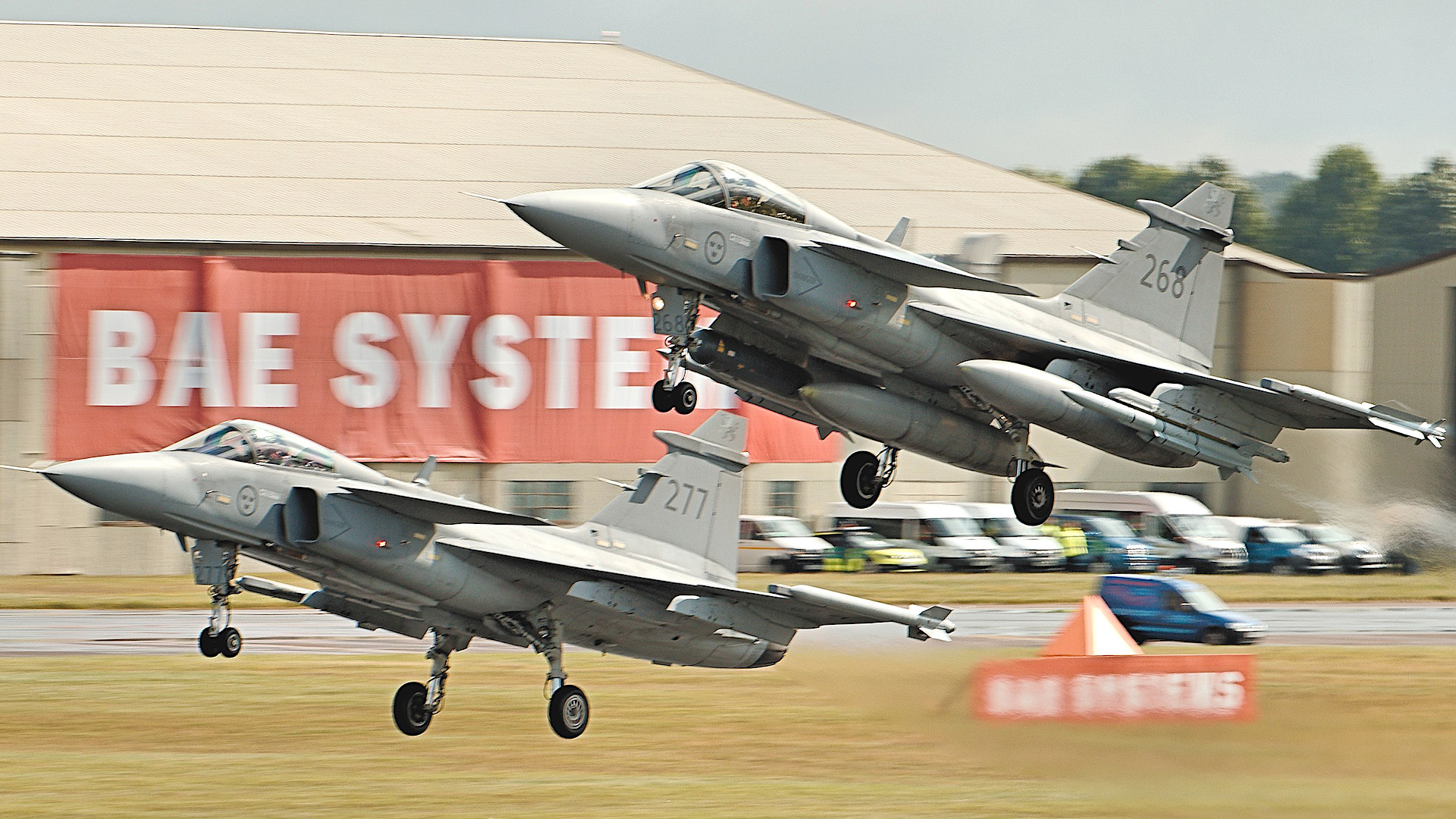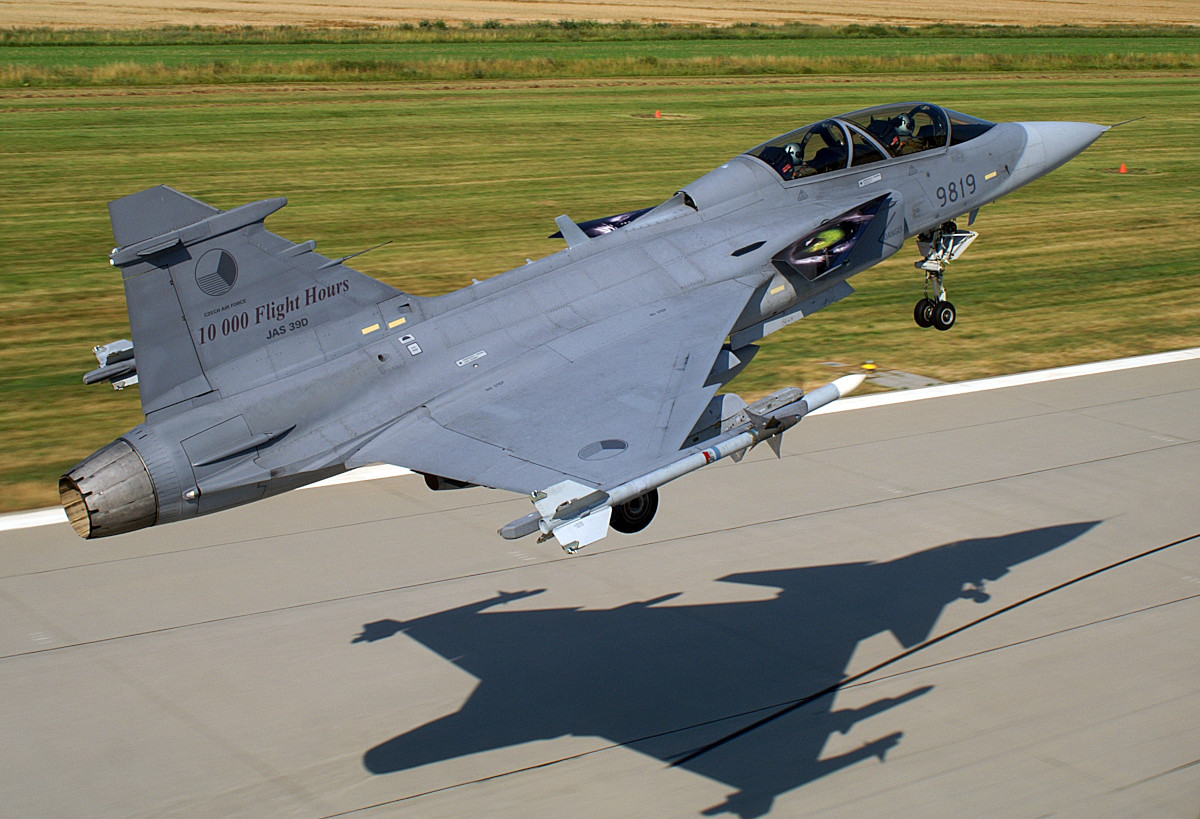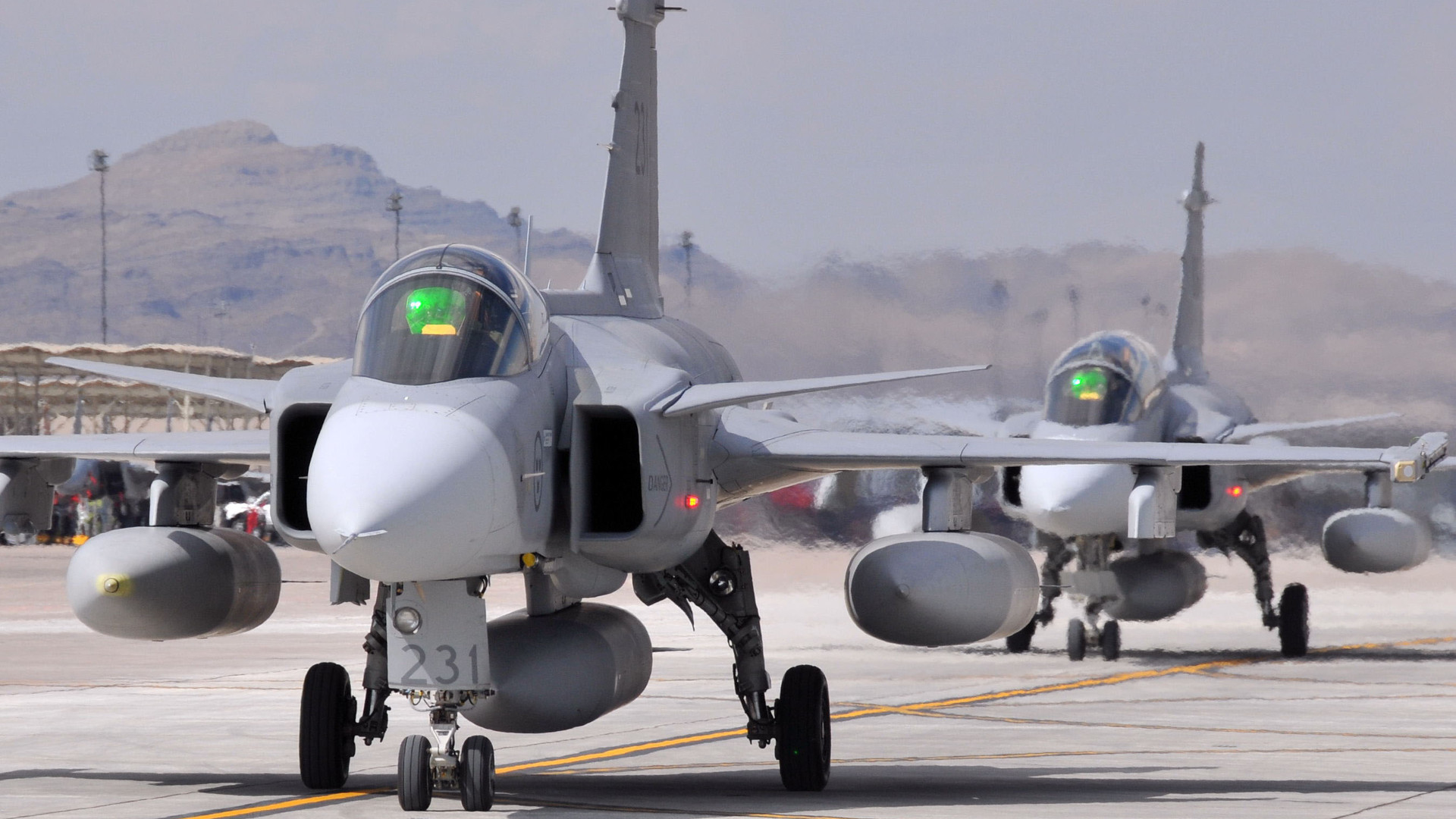The Swedish government has now formally announced plans to provide training to pilots and ground personnel from Ukraine on the operation and maintenance of JAS-39 Gripen fighter jets. This is in response to a Ukrainian desire for an “operational evaluation” of the type, which could imply interest in acquiring these aircraft.
The Swedish Regeringskansliet, or Government Office, the country’s top executive authority, detailed the Gripen training plans in a broader press release about new military aid for Ukraine earlier today. Authorities in Ukraine have been very outspoken in their desire to get fleets of more modern Western combat jets. Those efforts to date have focused primarily on securing U.S.-made F-16 Viper fighters, but other types are being actively considered.

“The armed forces are tasked with orientation training for Ukrainian pilots and associated aeronautical personnel on the JAS-39 [Gripen],” a machine translation of the release says. “The Ukrainian armed forces have expressed requests to be able to operationally evaluate the JAS-39 as one of the most urgent measures is to strengthen the Ukrainian air defense with a modern combat aircraft system.”
The government of Sweden has also now pledged to contribute millions of dollars to the British fund International Fund for Ukraine and the NATO Ukraine Comprehensive Assistance Package Trust Fund to help finance to purchase of additional weapon systems and other materiel.
In addition, the Swedish Armed Forces will help establish a logistics network to support systems the country has already sent to Ukraine with nodes in Poland, Romania, and Slovakia. Specific mention was made of this network being used to help Ukrainian forces sustain RBS 70 man-portable air defense systems (MANPADS), Combat Vehicle 90 infantry fighting vehicles (CV90; known as the Stridsfordon 90 in Sweden), Leopard 2 tanks (known in Sweden as the Stridsvagn 122), and Archer self-propelled 155mm howitzers. The first picture reportedly showing a Swedish CV90 in Ukraine just emerged yesterday.
Still, the Gripen plans are by far the most significant part of this announcement. Last year, The War Zone highlighted how even current-generation Gripen C/D variants could be a good option for Ukraine:
“Another option, and possibly the best of all, would be Sweden’s surplus JAS-39C/D Gripen multi-role fighters. These light-to-medium weight fighters are built with great efficiency and reliability in mind. They were designed to be turned around in the bush by tiny teams of mainly conscripted groundcrew and flown from roadways and rough fields during wartime. Distributed operations under very harsh sustained wartime conditions, especially in the cold, are literally what the design is all about.“

“Their single F404-derivative engine (license-built by Volvo) drinks comparatively small amounts of fuel compared to the other options and the type has a wide array of available armory from multiple nations. It has all-around good performance, modern radar and avionics, and is small in size, making it hard to spot visually.“
“The Gripen really is well suited for the current combat doctrine Ukraine is using in Ukraine today, although the fact that it is a Swedish design makes it a bit harder for the U.S. and NATO to supply and support it. Still, other NATO members operate the type. There is also the question of how many Sweden will be able to give up at this time.“
Gripen also has the ability to fire modern Western beyond-visual-range air-to-air missiles like the U.S. AIM-120 Advanced Medium Range Air-to-Air Missile (AMRAAM) and the European Meteor, something Ukrainian forces are known to be particularly interested in. A Ukrainian MiG-29 Fulcrum fighter pilot who publicly goes by his call sign Juice has told The War Zone in past interviews that a key benefit of acquiring newer Western combat jets would be the ability to effectively employ active radar-guided air-to-air weapons like the AIM-120.

All this being said, it remains unclear exactly how substantial the Swedish-provide training, at least initially, will be. Last month, Sweden’s Defense Minister Pal Jonsson revealed that discussions were ongoing about the possibility of training Ukrainian pilots to fly Gripen. However, he was very vague about what the end goal of such a program might be and there was no indication one way or the other about whether that might lead to actual deliveries of these fighter jets to Ukraine.
“That could, for example, mean test flights, using simulators, learning more about the extensive ground system that is part of the Gripen system,” Jonsson had said in an interview with Swedish television network TV4 on May 25, adding that there were no plans at that time to transfer any of the jets to Ukraine.
“We need them [our Gripens] for the defense of our territory right now, but we are opening up for letting the Ukrainians test the Gripen,” the Swedish defense minister said. “That is in line with what other countries are doing.”

In May, a number of NATO members announced plans to train Ukrainian pilots to fly the F-16 as part of a multi-national coalition. There remains no publicly announced plans or timeline for when Ukraine might actually begin to receive Vipers. A number of ex-Dutch Air Force F-16AM/BMs have just become available after a sale to a private U.S. contractor, Draken, was significantly scaled back.
The Swedish Air Force has around 94 Gripen C/D variants in service today. That service is working to replace those jets with newer E/F versions, but doesn’t presently expect that to happen until sometime in the 2030s.
A number of other countries operate Gripens, but generally have relatively small fleets. The Czech and Hungarian Air Forces notably only lease their jets from the manufacturer Saab, as well. The Empire Test Pilots’ School in the United Kingdom also flies leased Gripens.

Of course, none of this would necessarily preclude any existing Gripen operator from deciding to transfer some of their jets, especially if that came along with separate security guarantees from other countries. There have been instances of the United States and other members of NATO taking steps to backfill defense capacity in certain countries to help facilitate their delivery of higher-end weapon systems to Ukraine, or at least looking into doing so. In this context, its worth noting that Sweden is actively pushing to join NATO and is already part of a Nordic air defense alliance that was unveiled earlier this year.

Saab also routinely pitches leasing options as part of efforts to secure new Gripen deals and that might be another potential path to getting these jets to Ukraine. Any sale or lease of Gripens for Ukraine could be financed in whole or in part by one or more of Ukraine’s foreign partners to help speed the process along, too.
The Ukrainian government is certainly exploring options for acquiring more modern Western fighter jets beyond F-16. The War Zone was the first to get official confirmation this week that authorities in Ukraine are actively engaged with their counterparts in Australia to look into whether dozens of ex-Royal Australian Air Force F/A-18 Hornets might meet their needs.
There is, of course, still the distinct possibility that the idea of a fleet of Ukraine Gripens will turn out to be, at best, aspirational, at least in the near term. Even very rudimentary training could still be useful for determining how quickly Ukrainian pilots and ground crews might be able to get a fleet of Gripens into actual service, too. Earlier this year, the U.S. military conducted just such a baseline evaluation of two Ukrainian pilots’ general aptitude for flying the F-16.
All told, with it looking like there are no Gripens to be had in the near term, unless Sweden were to draw down its own fleet, the training program for Ukraine does appear to be heavily geared toward laying the groundwork for possible future sales. This represents the reality that Ukraine will very likely be a Western fighter operator in the future and that could be a lucrative proposition, especially in the long run, for companies like Saab. Working to establish ties now makes good sense.
Whatever the case, the Swedish government has now officially announced that it will move ahead with this initial Gripen training program for Ukrainian personnel.
Contact the author: joe@thedrive.com
